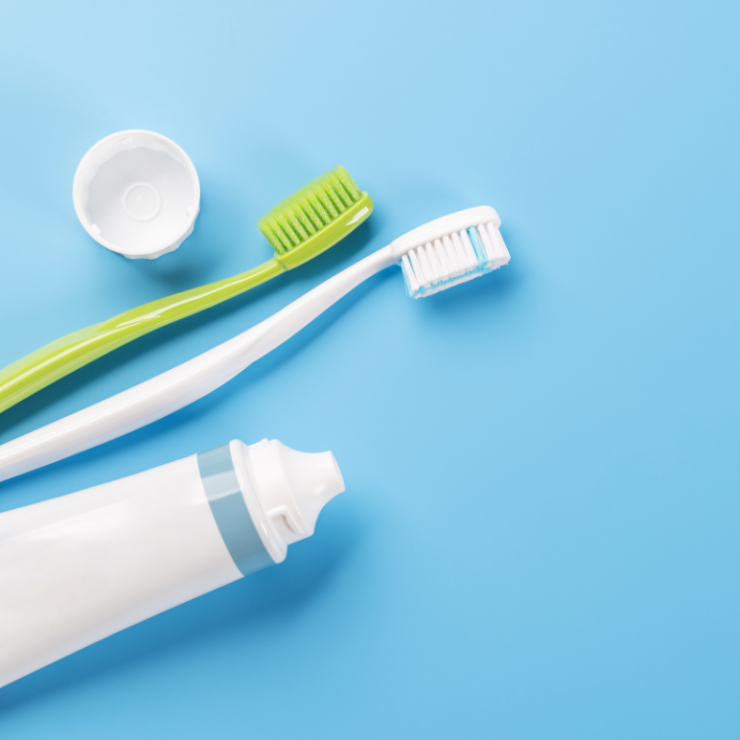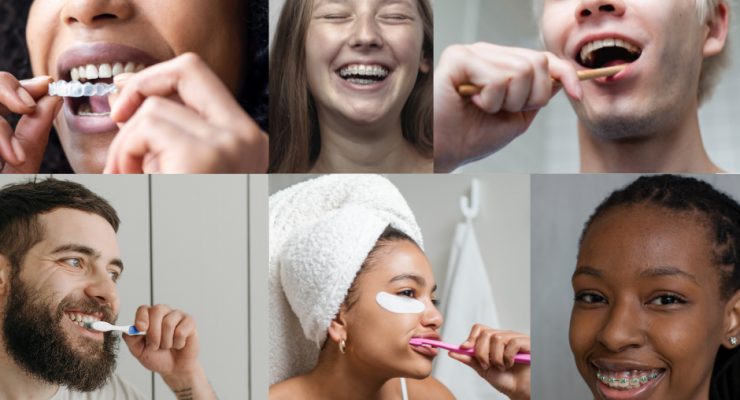Oral Public Health Specialist
North Somerset Council
Public Health, Post Point 11, Castlewood, Tickenham Road, Clevedon, BS21 6FW
Tooth decay effects nearly a quarter of children before they start school, and is the main reason 5-10 year olds are admitted to hospital.
The associated pain and subsequent days absent from school, means the impact of tooth decay and extraction are huge for each child and their family.
The key ways to prevent decay are:
-
- Brush teeth twice a day.
- Reduce how often sugar is eaten.
- See a dentist for regular check ups if possible.
There are several ways schools can adapt to support these actions.

Toothbrushing
Talk about it
Normalising tooth brushing will make a big difference for a lot of children and young people. If it is something which isn’t done at home, making it socially acceptable and culturally normal will increase how important it is to them.
This can be done by including it in everyday teaching, for example
- when discussing routine as part of a lesson, make sure to include toothbrushing;
- when talking about money perhaps include a sum about toothbrushes and toothpaste;
- when considering self-care, appearance, etc include toothbrushing as an essential part of this and advocate for it as something everyone does not just those wanting to make a good impression
Brush Together
Once a year the Oral Health Foundation run a “Great British Brushathon” as part of National Smile Month. This is a great excuse to bring a group together to brush (and laugh) together for 2 minutes. You could find out when it is this year and encourage your class / year group / school to participate. You may even be able to source the equipment for this. Make sure you take lots of photos for your social media!
Supply resources
Some young people may arrive at school each day having not brushed their teeth for reasons outside of their control. Toothbrushing Packs* could be made available for students who need it; be sure to advertise that they are available and hand them out without judgement if they are requested. You could charge a small fee or give them freely depending on your feelings about this. You will also need to ensure they have the time and space to brush their teeth once they have received a pack.
*You could include: toothbrush, toothpaste and perhaps a QR code for the free Brush DJ App which not only plays music for two minutes but gives hints and tips for good brushing technique too
Reduce sugar intake
Look around
The best way to support young people to cut down on sugar is to first look around, imagine yourself in their shoes and see what they can see. Once you start to do this you will see how often they are offered or advertised sugary products.
Start with the school:
- Is dessert served everyday? Could a low sugar (whole/frozen fruit) option serve just as well? While eating a dessert after a meal is not as harmful for teeth as snacking between meals, good nutrition supports good oral health and many diet related diseases actually harm the mouth eventually anyway.
- Is there a tuck shop or vending machine on site? What is served from there? Try ensuring that there are some low sugar options; fruit, natural yoghurt, chopped raw vegetables, cheese, crackers, rice cakes, water, milk. Nuts are good too, but due to extreme reactions from some students your school may be a nut-free zone.
- Do the bins / recycling systems act as a billboard for unhealthy products? If students can see the contents of the bins easily, they are more likely to be attracted to the brands which are visible there – even if the don’t notice it. Think about how the bins could hide their contents so that the companies don’t get free advertising to your pupils.
- A simple fizzy drinks policy may be hard to enforce, but would give opportunity to warn of the harms of frequent fizz-sipping. A key point to remember is that while sugar is the main contributor to tooth decay, and many fizzy drinks contain a lot of sugar, the carbonic, phosphoric and citric acids (present even in sugar-free fizzy drinks) all weaken tooth enamel leading to a disease called “Dental Erosion”.
- As well as limiting the number of times children eat sugar, reducing the amount of sugar also helps to keep teeth (and bodies) healthy. For activities during lessons, The Sugar Smart Guide, is a quick guide to help reduce sugar intake, and the Food Scanner App, can help to make healthy swaps to reduce sugar in a diet.
For more school-based lessons and activities follow this link to the Oral Health Resources For Schools page.
Dentists
As a school it is vital that you allow students (and staff) to attend dental appointments – they are very difficult to get hold of and to rearrange; on top of this a dentist will often charge the patient for the full cost of the appointment if the patient does not show up.
NHS dental services are free for under 18s. It is ideal for a child to visit at dentist every six months and get a coating of fluoride varnish to help strengthen teeth. Regular visits will help the experience feel normal and reduce any anxiety about going.
Dentists may give advice about lifestyle changes or recommend courses of treatment. It is important that this advice is taken seriously as it can reduce future problems, pain and cost.
If a child develops any pain or problems with their teeth, it is important that they are found dental help as soon as possible; once they are painful, teeth cannot self-heal.
In a dental emergency or out of hours you can call 111- be sure to make it clear that a child is in pain. You can also visit the NHS website for advice about getting an emergency appointment.
Follow this link to get Dental Help from NHS 111
Free, impartial advice on any dental or oral health issue is available from the Dental Helpline: 01788 539780 (local UK call rate).
Emergency dentists treat serious bleeding and swelling in the mouth. Sometimes you need to book a call back with them first. They can usually prescribe painkillers for severe pain. The Dental Emergency Helpline for the area is 0300 303 4165.
For more information about NHS cost bands for dental care and who can access free dental care on the NHS, visit the NHS website.





